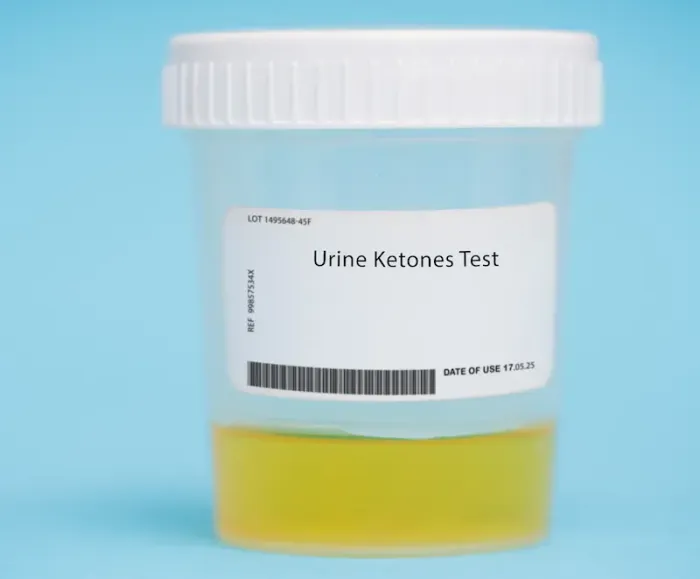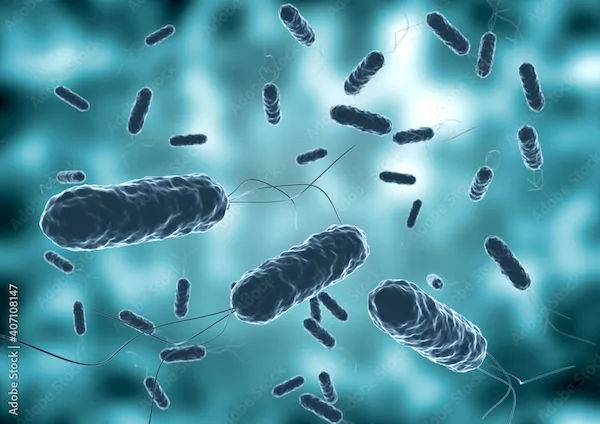Ketones in Urine: Causes, Symptoms, and What to Do
Find out what the presence of ketones in urine means. Learn about its causes, symptoms, possible health risks, and the right steps to manage or prevent high ketone levels effectively.

Written by Dr. Mohammed Kamran
Reviewed by Dr. Rohinipriyanka Pondugula MBBS
Last updated on 13th Jan, 2026

Introduction
Seeing “ketones in urine” on a test result can be confusing and a bit worrying. Ketones are acids your body makes when it burns fat for fuel. They can appear in urine for several reasons—from overnight fasting or a low-carb diet to dehydration, illness, or poorly controlled diabetes. Sometimes ketones in urine are harmless and temporary; other times they’re a warning sign of a serious complication called diabetic ketoacidosis (DKA), which requires urgent care.
This practical guide explains what ketones are, why they show up in urine, when to be concerned, and what to do next. You’ll learn how to test for urine ketones at home, how to interpret results (trace, small, moderate, large), common causes in adults, children, and during pregnancy, and when to call a doctor or go to the hospital. We also include prevention tips, examples, and clear action steps that speak to real-life situations like keto diets, fasting, and illness.
If lab tests are needed, remember Apollo 24|7 offers convenient home collection for tests like HbA1c or a urine ketone test. If symptoms are severe or persist, you can consult a doctor online with Apollo 24|7 for timely guidance.
What Are Ketones and Why They Show Up in Urine
Ketones are acids produced when your body burns fat for energy. Under typical conditions, your brain and muscles primarily use glucose (sugar) for fuel. But when glucose is scarce—during fasting, prolonged exercise, low-carbohydrate or ketogenic diets, or when insulin is insufficient—your liver converts fat into ketone bodies to keep you going. Some ketones spill into urine, which is why a urine test can detect them. Small amounts (especially after an overnight fast) can be normal, while higher levels can signal a problem, particularly for people with diabetes.
Urine vs. Blood Ketones: What’s the Difference
Urine tests measure mainly acetoacetate, while blood meters measure beta-hydroxybutyrate—the predominant ketone in diabetic ketoacidosis (DKA). Urine ketones lag behind real-time blood changes and can remain positive even as a crisis improves. Blood testing offers more immediate and precise insights; urine testing is convenient and inexpensive for routine checks. Many people use urine test strips at home, saving blood testing for when symptoms suggest a higher risk of DKA or when medical advice recommends.
The Three Ketone Bodies: Acetoacetate, Beta-hydroxybutyrate, Acetone
• Acetoacetate: Detected by most urine strips
• Beta-hydroxybutyrate: Best measured in blood, rises most in DKA
• Acetone: Exhaled in breath (the “fruity” odour)
Knowing which ketone you’re measuring helps explain why urine and blood readings can disagree, especially during illness or recovery.
Is It Normal or Concerning?
Not all ketones are cause for alarm—sometimes they simply reflect how your body uses energy. Let’s look at when to relax and when to pay attention:
Daily Life Situations: Morning, Fasting, Low-carb Eating
Trace ketones in urine in the morning can appear after overnight fasting—your body used stored fat while you slept. Likewise, people following a very low-carbohydrate or keto diet often show small to moderate urine ketones without symptoms. In that context, ketonuria can be expected and not inherently dangerous if you feel well and stay hydrated. Athletes may transiently develop ketones after long or intense workouts, especially if carbohydrate intake is low.
When Ketones Signal a Problem
Ketones become concerning when paired with symptoms (nausea, vomiting, stomach pain, rapid breathing, dehydration, confusion) or high blood glucose in people with diabetes. Moderate or large ketones in urine can signal insufficient insulin and risk of DKA, a medical emergency.
In pregnancy, ketones may need closer assessment even without symptoms because maternal ketones can reflect inadequate calorie intake, dehydration, or poorly controlled diabetes; contact your healthcare provider for guidance.
If you’re not diabetic but have high ketones in urine with illness, severe vomiting, or weight loss, get medical advice to rule out infections, metabolic conditions, or medication effects.
Common Causes of Ketones in Urine
Here are some common causes of ketones in urine:
Diabetes and Missed Insulin
Insufficient insulin—due to missed doses, malfunctioning pumps, infection, or new-onset diabetes—can push the body to burn fat rapidly, raising ketones. In type 1 diabetes (and sometimes type 2), this may progress to DKA. Certain diabetes medications called SGLT2 inhibitors (e.g., canagliflozin, dapagliflozin, empagliflozin) can rarely trigger “euglycemic DKA,” where ketones are high but blood sugar is normal or mildly elevated. Seek care if unwell.
Low-carb Diets, Fasting, Intense Exercise
A ketogenic or very low-carb diet deliberately promotes ketosis. Ketones in urine are expected and can be benign if you’re feeling well and staying hydrated. Extended fasting or time-restricted eating can also increase urine ketones—again, usually harmless if you’re otherwise healthy. Long or intense workouts (especially in fasted states) can temporarily raise ketones.
Consult Top Specialists
Illness, Dehydration, Vomiting
During infections or any illness with fever or poor appetite, your body demands extra energy. If you can’t eat or keep fluids down, you may produce ketones. Dehydration concentrates urine ketones and raises health risks. Illness can unmask insulin shortages in diabetics; using a “sick-day” plan (checking ketones, taking correction insulin, sipping fluids) is important.
Pregnancy, Children, and Medications (SGLT2 Inhibitors)
Pregnant people, especially in the morning or after vomiting with morning sickness, can show ketones from inadequate carbohydrate intake. Persistent ketones merit clinician input to ensure appropriate nutrition and diabetes control if relevant.
Children, due to smaller energy reserves, may develop ketones rapidly with fever or poor intake; monitor closely and seek care if symptoms worsen.
Medications like SGLT2 inhibitors (and, rarely, excessive alcohol) can alter carbohydrate metabolism and increase ketone formation.
Symptoms and Red Flags to Watch For
Here are some symptoms to watch out for:
Typical Signs of Ketosis vs. Signs of DKA
Mild ketosis often causes no symptoms or mild ones like dry mouth, increased thirst, or temporary fatigue.
DKA, by contrast, is serious: symptoms include excessive thirst, frequent urination, nausea/vomiting, abdominal pain, deep or rapid breathing, fruity breath odour, weakness or confusion, and high blood sugar (not always high if on SGLT2 inhibitors). Untreated DKA can be life-threatening. If you suspect DKA, seek emergency care immediately.
Special Warning Signs During Pregnancy and in Kids
In pregnancy, watch for persistent ketones with poor intake, severe nausea/vomiting, dizziness, or dehydration. Contact your obstetric provider promptly.
In children, ketones can rise quickly during illness; look for lethargy, vomiting, stomach pain, rapid breathing, and inability to keep fluids down. If symptoms persist beyond 24–48 hours or worsen, consult a doctor online with Apollo 24|7, or go to urgent care if severe.
How to Use Urine Ketone Test Strips Correctly?
Urine ketone test strips are inexpensive and widely available.
Steps to use:
• Collect a fresh urine sample or pass the strip through your urine stream.
• Tap off excess and wait the time indicated on the package (usually 15–60 seconds).
• Compare the colour pad to the chart on the bottle.
Tips: Use strips before their expiry date and store them dry. Test when you feel unwell, have high blood glucose, or as advised. Morning tests may show “trace” ketones due to fasting; recheck after breakfast and hydration.
Blood Ketone Meters and When They Can Help
Blood ketone meters measure beta-hydroxybutyrate and give real-time results. They’re especially useful if you have diabetes and are ill, have persistent high sugars, or are on SGLT2 inhibitors. Blood testing can detect rising ketones sooner than urine tests and guide faster action to prevent DKA.
Accuracy Tips and Timing Pitfalls
• Urine lag: Urine results reflect earlier levels.
• Hydration: Dehydration concentrates ketones.
• Diet/exercise: Low-carb meals or workouts can raise levels temporarily.
If lab tests are needed, Apollo 24|7 offers home collection for HbA1c or serum ketones.
Interpreting Urine Ketone Results
Here’s how to interpret the results:
Common Ranges and What They Mean
• Negative: No detectable ketones
• Trace (~5 mg/dL): Common with fasting or morning samples
• Small (~15 mg/dL): May appear with low-carb diets or mild dehydration
• Moderate (~40 mg/dL): Concerning, especially with symptoms or high blood glucose
• Large (≥80 mg/dL): High risk—seek medical advice promptly
Action Steps for Each Level
• Negative: No action if asymptomatic.
• Trace/Small: Hydrate, eat carbs if appropriate, recheck in a few hours.
• Moderate: If diabetic, correct insulin and hydrate; if not diabetic but ill, contact a clinician.
• Large: May indicate DKA—seek emergency care if symptomatic.
What To Do Next: Treatment and Management
Here’s what to do for treatment and management:
If You Have Diabetes
• Follow your sick-day plan and monitor every few hours.
• Never skip basal insulin.
• Hydrate frequently.
• Combine carbs and insulin when ketones are moderate/large.
• Seek emergency care if vomiting or unable to keep fluids down.
If You Do Not Have Diabetes
• Identify the trigger (fasting, diet, dehydration, etc.).
• Hydrate and refuel with balanced carbs.
• Re-test; if ketones remain high or symptoms persist, seek medical help.
Illness Rules, Hydration, Carbs, and Insulin Adjustments
Because urine ketones lag, track patterns—not single readings. If using an insulin pump, check sites for failures. If symptoms don’t improve, consult a doctor via Apollo 24|7.
Consult Top Specialists
Special Situations: Pregnancy, Kids, Athletes, and Keto Dieters
Here’s how ketone levels can vary in special situations:
Ketones in Urine During Pregnancy
Occasional trace ketones can occur, but persistent levels need medical review—especially with diabetes or poor intake. Stay hydrated and include complex carbs.
Ketones in Children
Children develop ketones faster during illness. Offer fluids with carbs if sugars are normal/low. If symptoms persist, consult a doctor.
Athletic Training and Low-carb Lifestyles
Ketones can rise after long workouts or low-carb eating. Stay hydrated and include carbs around training sessions to avoid excess ketosis.
Prevention and Everyday Tips
Here’s how you can prevent
Routine Monitoring and Hydration
• For diabetics: Check ketones when glucose >250 mg/dL or when unwell.
• For others: Monitor after illness or fasting.
• Stay hydrated daily.
Nutrition, Medication Review, and Illness Planning
• Ensure balanced intake.
• Discuss SGLT2 risks with your doctor.
• Prepare a sick-day plan with steps for testing, fluids, and when to seek care.
Apollo 24|7 offers home collection for follow-up labs like HbA1c and electrolytes.
When to Seek Medical Care and Possible Complications?
Here’s when you should seek medical care:
Call a doctor if:
• Ketones are moderate and not improving
• You have fever, vomiting, or dehydration
• You’re pregnant with persistent ketones
Go to the emergency department if:
• Ketones are large
• You have DKA symptoms (vomiting, abdominal pain, confusion, deep breathing)
Understanding Diabetic Ketoacidosis (DKA)
DKA occurs when insulin is lacking, causing acid build-up and dehydration. It requires hospital care with IV fluids and insulin. Early detection through ketone testing prevents complications.Consult Top Specialists
Conclusion
Ketones in urine aren’t always alarming. Trace or small ketones often resolve with hydration and nutrition. Moderate or large levels, especially with symptoms like nausea or rapid breathing, may signal DKA and require urgent care. This guide explained causes, testing, interpretation, and management for both diabetics and non-diabetics, including prevention tips and special considerations for pregnancy and children. If symptoms persist, get lab tests (like HbA1c or electrolytes) via Apollo 24|7’s home collection or consult a doctor online for tailored advice.
Consult Top Specialists

Dr. Rohit Bhattar
Uro Oncologist
14 Years • MBBS, MS, MCh (Urology), Fellowship in Uro-oncology and Robotic Urology (United Kingdom)
Ahmedabad
Apollo Hospitals Gandhinagar, Ahmedabad
(100+ Patients)
Dr. Mohammed Rehan Khan
Urologist
8 Years • MBBS, MS (General Surgery), Mch (Urology)
Barasat
Diab-Eat-Ease, Barasat

Dr. Gautam Chopra
Urologist
4 Years • MBBS, MS (General Surgery), DNB (Genito-Urinary Surgery )
Hoshiarpur
Shivam hospital, Hoshiarpur

Dr. Pradeep Champawat
Urologist
10 Years • MBBS, MS, DNB Urology
Delhi
Apollo Hospitals Indraprastha, Delhi
(175+ Patients)

Dr. Gaurab Dasgupta
Urologist
14 Years • MBBS, MS General Surgery, MCH Urology, FMAS
Kolkata
MCR SUPER SPECIALITY POLY CLINIC & PATHOLOGY, Kolkata
Consult Top Specialists

Dr. Rohit Bhattar
Uro Oncologist
14 Years • MBBS, MS, MCh (Urology), Fellowship in Uro-oncology and Robotic Urology (United Kingdom)
Ahmedabad
Apollo Hospitals Gandhinagar, Ahmedabad
(100+ Patients)
Dr. Mohammed Rehan Khan
Urologist
8 Years • MBBS, MS (General Surgery), Mch (Urology)
Barasat
Diab-Eat-Ease, Barasat

Dr. Gautam Chopra
Urologist
4 Years • MBBS, MS (General Surgery), DNB (Genito-Urinary Surgery )
Hoshiarpur
Shivam hospital, Hoshiarpur

Dr. Pradeep Champawat
Urologist
10 Years • MBBS, MS, DNB Urology
Delhi
Apollo Hospitals Indraprastha, Delhi
(175+ Patients)

Dr. Gaurab Dasgupta
Urologist
14 Years • MBBS, MS General Surgery, MCH Urology, FMAS
Kolkata
MCR SUPER SPECIALITY POLY CLINIC & PATHOLOGY, Kolkata
Consult Top Specialists

Dr. Rohit Bhattar
Uro Oncologist
14 Years • MBBS, MS, MCh (Urology), Fellowship in Uro-oncology and Robotic Urology (United Kingdom)
Ahmedabad
Apollo Hospitals Gandhinagar, Ahmedabad
(100+ Patients)
Dr. Mohammed Rehan Khan
Urologist
8 Years • MBBS, MS (General Surgery), Mch (Urology)
Barasat
Diab-Eat-Ease, Barasat

Dr. Gautam Chopra
Urologist
4 Years • MBBS, MS (General Surgery), DNB (Genito-Urinary Surgery )
Hoshiarpur
Shivam hospital, Hoshiarpur

Dr. Pradeep Champawat
Urologist
10 Years • MBBS, MS, DNB Urology
Delhi
Apollo Hospitals Indraprastha, Delhi
(175+ Patients)

Dr. Gaurab Dasgupta
Urologist
14 Years • MBBS, MS General Surgery, MCH Urology, FMAS
Kolkata
MCR SUPER SPECIALITY POLY CLINIC & PATHOLOGY, Kolkata
More articles from General Medical Consultation
Frequently Asked Questions
1) What does it mean if you have ketones in urine but normal blood sugar?
It may occur with fasting, low-carb diets, or dehydration. Rarely, euglycemic DKA (linked to SGLT2 inhibitors) can cause it. Seek medical advice if you feel unwell.
2) Are moderate ketones in urine dangerous?
Yes, especially with diabetes or symptoms like nausea. Hydrate, follow your sick-day plan, and contact your doctor.
3) How accurate are urine ketone test strips?
They measure acetoacetate and can lag behind blood results. Blood ketone meters are more accurate during illness.
4) How can I reduce ketones in urine quickly?
Hydrate, eat carbs if suitable, and rest. If diabetic, use correction insulin. Seek care if ketones stay high.
5) When should I go to the hospital for ketones?
Go if ketones are large or you have DKA symptoms (vomiting, confusion, deep breathing), or if you’re pregnant or a child with persistent symptoms.




 for Health.webp)